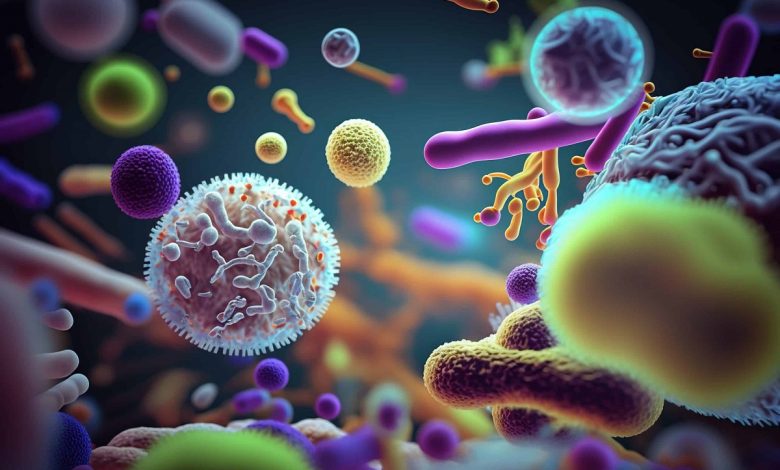Fiber Fights Harmful Gut Bacteria: A Protective Diet For Your Gut Health

Harmful Gut Bacteria: Dietary fiber is widely recognized for its role in promoting digestive health, but recent studies have highlighted its crucial function in supporting a balanced gut microbiome, specifically in combating harmful bacteria.
Harmful Gut Bacteria, The human gut is home to trillions of microorganisms, including bacteria, fungi, and viruses. While some of these microbes are beneficial, others can be harmful and may contribute to digestive issues, infections, and even chronic diseases. Consuming a fiber-rich diet can help maintain this microbial balance, acting as a natural defense against harmful bacteria in the gut.
Fiber Fights Harmful Gut Bacteria
The Role Of Fiber In Gut Health

Harmful Gut Bacteria, Fiber, particularly soluble fiber, serves as food for the beneficial bacteria that reside in the intestines. These beneficial microbes use fiber to produce short-chain fatty acids (SCFAs) like butyrate, which have anti-inflammatory properties and help strengthen the gut lining. This not only supports digestion but also helps to prevent harmful bacteria from proliferating. Moreover, fiber acts as a prebiotic, stimulating the growth and activity of beneficial bacteria such as Bifidobacteria and Lactobacilli.
Harmful Gut Bacteria, On the other hand, a lack of fiber in the diet can promote an imbalance in the gut microbiome, creating an environment where harmful bacteria thrive. These harmful microbes may contribute to digestive disorders such as irritable bowel syndrome (IBS), inflammatory bowel disease (IBD), and even conditions like obesity and diabetes.
How Fiber Combats Harmful Bacteria
Enhancing Gut Barrier Function: A high-fiber diet strengthens the gut’s mucosal barrier, preventing harmful bacteria from crossing into the bloodstream and causing infections or inflammation.
Promoting Beneficial Bacteria Growth: By acting as a prebiotic, fiber supports the growth of beneficial bacteria that crowd out pathogenic microorganisms, helping to maintain a healthy microbiome balance.
Producing Anti-Inflammatory Compounds: SCFAs produced by fiber fermentation in the gut help to regulate immune responses and reduce inflammation. This can reduce the risk of diseases associated with an imbalanced gut microbiome.
Reducing pH Levels: The fermentation of fiber by gut bacteria produces acids that lower the pH of the gut, creating an environment that is less favorable for harmful bacteria and pathogens to thrive.
Benefits Of A Fiber-Rich Diet

Harmful Gut Bacteria, A diet high in fiber from fruits, vegetables, legumes, whole grains, and seeds not only supports digestive health but also provides a wide range of health benefits. These include improved blood sugar regulation, better weight management, and a reduced risk of cardiovascular diseases. Additionally, fiber-rich foods provide essential nutrients and antioxidants that support overall well-being.
Final Thought
Harmful Gut Bacteria, Incorporating a variety of fiber-rich foods into your diet is a simple yet effective way to protect your gut from harmful bacteria and promote a healthy balance of gut flora. A high-fiber diet is an essential component of long-term digestive health, reducing the risk of digestive disorders and chronic diseases. By choosing whole, plant-based foods, individuals can enhance their gut microbiome and improve their overall health, supporting their body’s natural defenses against harmful microbes.
Also Read:
New Research: A Short Period Of Vegetarianism Can Benefit Gut Health
Gut Cleansing Drink: A Drink That Assists In Cleansing The Intestines And Reducing Weight
Gut Health And Microbiome: How Social Relationships Shape Gut Microbiome




